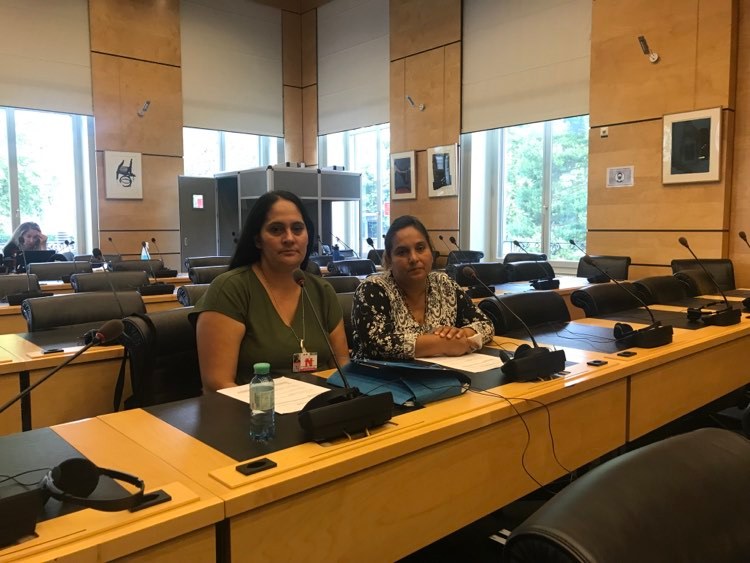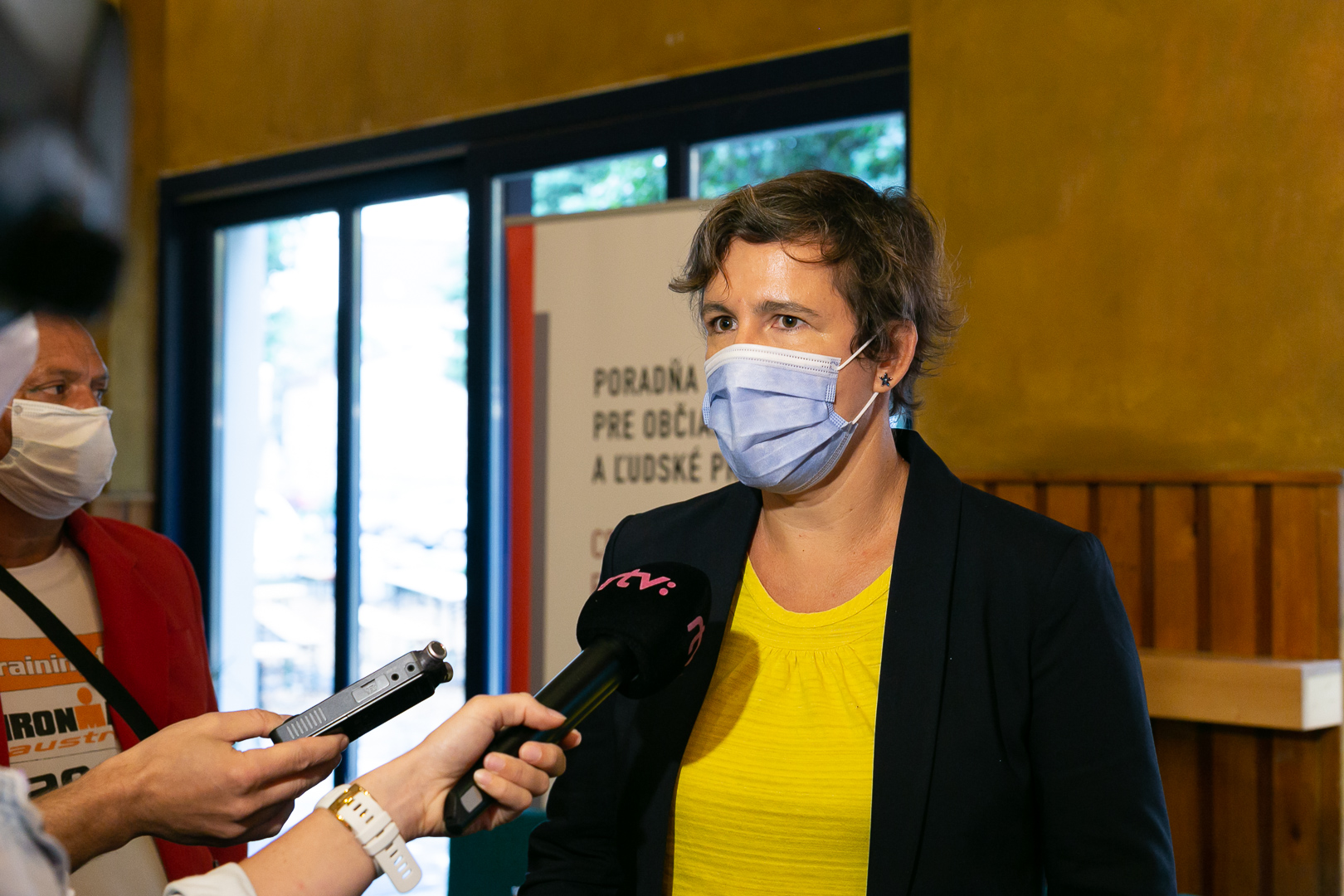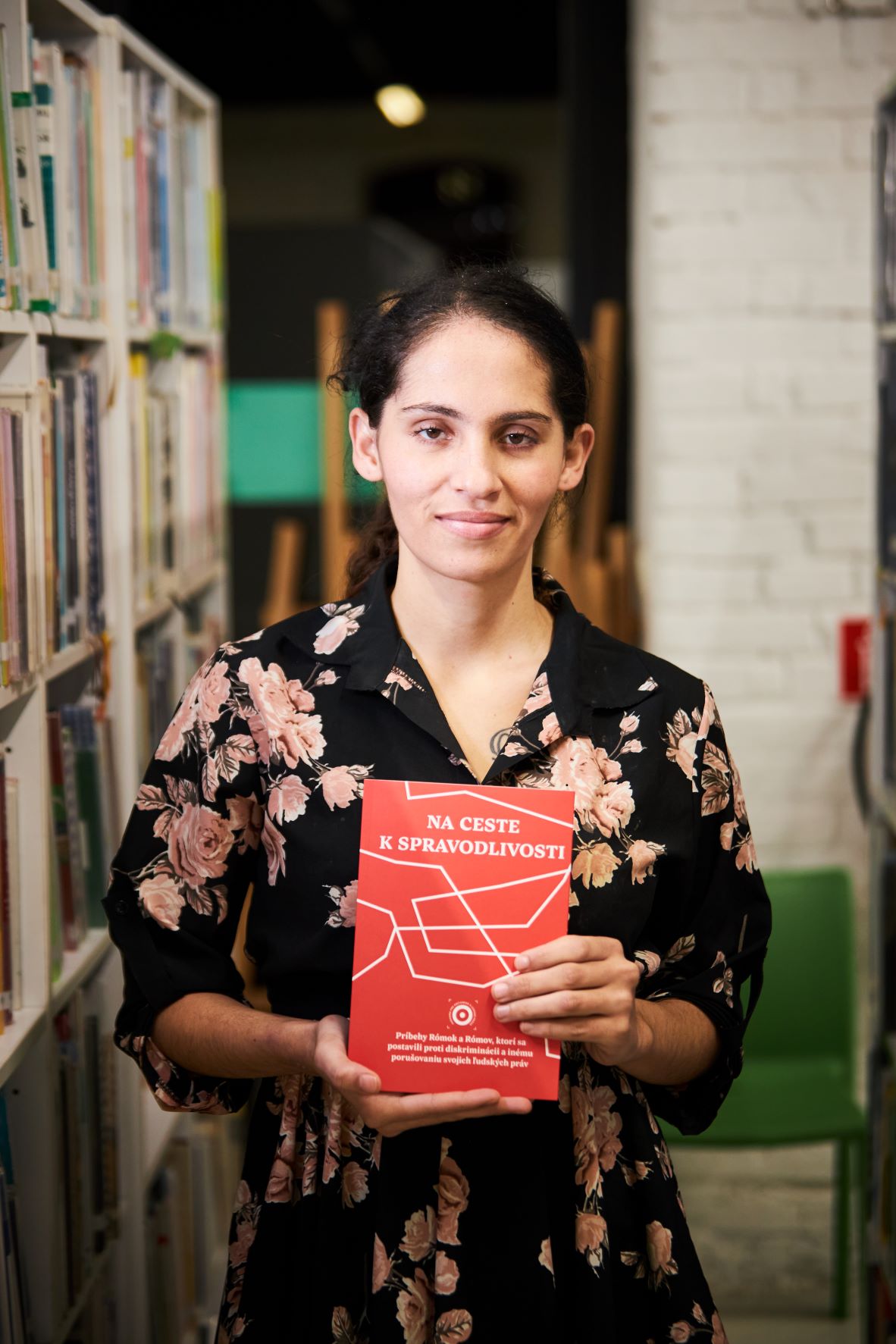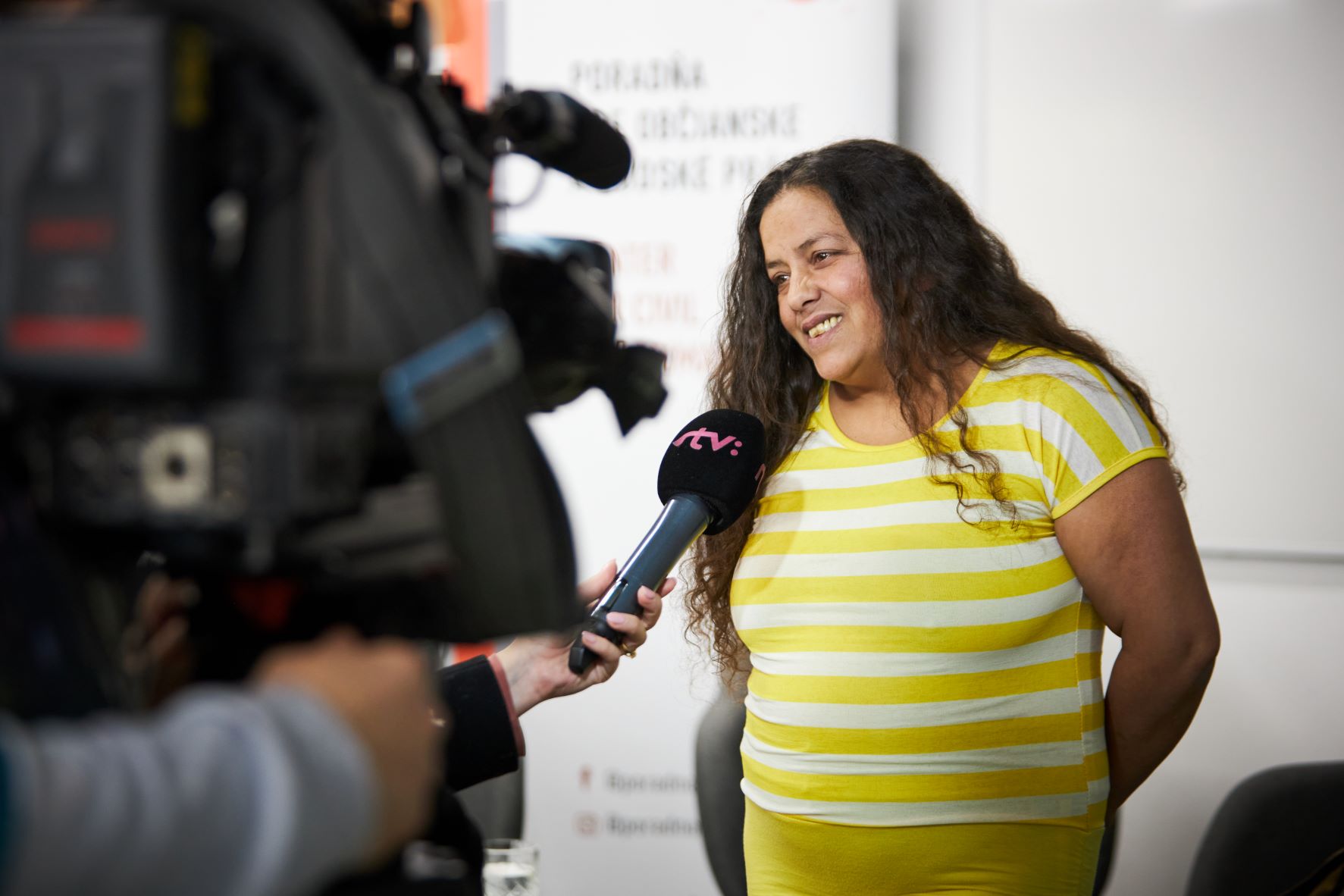OUR MARKS: Poradňa pre občianske a ľudské práva
01.02.2024

Photo from participation in the UN meeting. Source: Poradňa pre občianske a ľudské práva
How do you perceive the implementation of the project “Enforcement of the human rights of the Roma minority through the use of legal means of protection and in cooperation with local activists” over time?
The project immediately followed up on our long-term work to protect the rights of Roma and enabled us to further develop it. We consider this to be extremely valuable, even after a certain period of time. Continuity and perseverance are essential in this work. Improvements do not come easily and usually require many years of effort. For a very long time, for example, we tried to get the Slovak government to recognize the practice of forced sterilization of Romani women and to apologize to the injured women. And for many years we encountered absolute lack of interest. It was only thanks to our advocacy activities and in cooperation with active Roma women towards government institutions that we finally managed to achieve this goal during this project. This also applies to our strategic legal work, in which we provide free legal representation for discriminated Roma men and women or conduct court proceedings against the state ourselves.
The project enabled us to smoothly continue the legal solution of many ongoing legal cases, and during its implementation we finally reached several important court decisions.
How did your project “Enforcement of the human rights of the Roma minority through the use of legal means of protection and in cooperation with local activists” develop after the end of support from the ACF – Slovakia program?
I must repeat that we consider continuity in our work to be crucial. That is why it is important for us that we continue with it even after the end of the project. We continue to carry out regular human rights monitoring in Roma communities, conduct strategic court proceedings regarding discrimination or other violations of the rights of Roma and Roma women, and in relation to the responsible state institutions, we advocate that they actively protect the human rights of the Roma minority. The results of our monitoring show that discrimination against Roma in Slovakia is unfortunately still widespread, including systemic institutional discrimination that is deeply rooted in the field of education, housing and health care. Many Romani men and women still live without access to drinking water and live in conditions that are at the expense of human dignity. Children who grow up in this environment are often educated segregated in special or regular schools and classes. In many cases, the education they receive in them will never allow them to leave the once marginalized community and integrate into mainstream society. Roma women are significantly disadvantaged and face multiple discrimination not only because of their ethnicity, but also because of their gender. We continue to strive in various ways to improve the situation in this direction.
What results did you achieved?
We successfully involved more than a hundred people in the implementation of the project, and the vast majority were engaged Roma men and women. Many and many, for example, gave us valuable information about violations of the rights of other Romani men and women in their surroundings as part of our monitoring in Romani communities, which was the basis for our further work within the project. At the time of the coronavirus pandemic, when we had limited opportunities to carry out field monitoring, communication with them was incredibly important and essential for our further project activities.

Photo from the press conference on the judgment of Moldava nad Bodvou. Source: Maja Bodnárová for the Poradňa pre občianske a ľudské práva
What successes have you achieved with the project “Enforcement of human rights of the Roma minority through the use of legal means of protection and in cooperation with local activists”?
At the very beginning of the project, we achieved an important judgment of the European Court of Human Rights, which ruled on the violation of the rights of two injured Roma from the well-known violent police raid from Moldava nad Bodvou. The latter was key to the fact that the Slovak government finally apologized for this shameful action by the police. We also achieved groundbreaking court rulings in favor of Roma children discriminated against in special education and at a segregated “purely Roma” school, which emphasize the state’s responsibility for the situation and its solution. Both are the first of their kind and are extremely valuable tools for promoting equal access of Roma children to education in the future as well. We engaged with several international human rights institutions, especially with the UN Committee on the Elimination of Racial Discrimination.
We participated in the meeting of this committee on Slovakia, while our colleagues – Roma women also spoke at it. It was a rare moment when the voice of Roma women from Slovakia was heard at the UN. The committee addressed several of our proposed recommendations to the Slovak government.
All our efforts within the project were carried out in close cooperation with many Roma activists who participated in several activities. We also held a meeting for some and some of them, which created space for their networking and joint planning of activities. They were Roma men and women who, with our support, fought against injustice and demanded justice. Several of them shared their story in a unique book that we published as part of the project and aptly named “On the road to justice.”
We wanted to motivate other Roma men and women and all others who face wrongdoing in Slovakia to not give up. and asserted their rights. Cooperation with a group of Roma activists from the villages of Hermanovce and Jarovnice, with whom we were in intensive contact, was extremely important for us. Several of these women were illegally sterilized in the past, and mainly thanks to their tireless efforts, during the project we achieved the aforementioned apology from the government for this serious systemic violation of the rights of Roma women, which occurred in the former Czechoslovakia and later in Slovakia until 2004.

Photo from the book presentation. Source: Marek Turčok for the Poradňa pre občianske a ľudské práva
What was/is the benefit of your project for the target groups and the surrounding area?
We believe that, with the project, we have raised wider public awareness of the violation of the rights of Roma and Roma women and contributed to the fact that the responsible state institutions paid increased attention to certain expressions of them. In addition, primarily through our legal work, we have contributed to the fact that Romani men and women who face discrimination or police violence have slightly better chances of obtaining justice in Slovakia today than they did a few years ago. We also believe that the achieved positive judgments of the courts and the published publication of the stories of Roma men and women who have successfully defended themselves against injustice can encourage others to stand up and defend themselves against injustice.

Photo from the presentation of the book On the road to justice, Source: Marek Turčok for Poradňa pre občianske a ľudské práva
What experiences did you – as an organization – gain within the framework of the ACF – Slovakia program?
We have realized that our work can be greatly affected by external circumstances that are absolutely impossible to predict and over which we have no control. We are of course referring to the coronavirus pandemic, the first wave of which peaked when we started the project. The pandemic complicated many of our activities, but in the end we were able to adapt and find solutions.
What specific benefits and opportunities did the program directly provide you?
We perceive the ACF program as one of the few sources in Slovakia in recent years, within which we had the opportunity to obtain longer-term financial support for the continuation of our work to protect the rights of the Roma minority. Including supporting the conduct of our strategic litigation. We are therefore extremely grateful for his support.
How do you evaluate the cooperation with ACF – Slovakia and what impact did the program have on your professional and personal growth?
The project implemented by us did not include activities aimed at our team and aimed at the development of its members. However, we believe that the work we have done within the project has made us more experienced and that we will be able to use it in the future.
We also made a short video about this project, which you can watch here:
